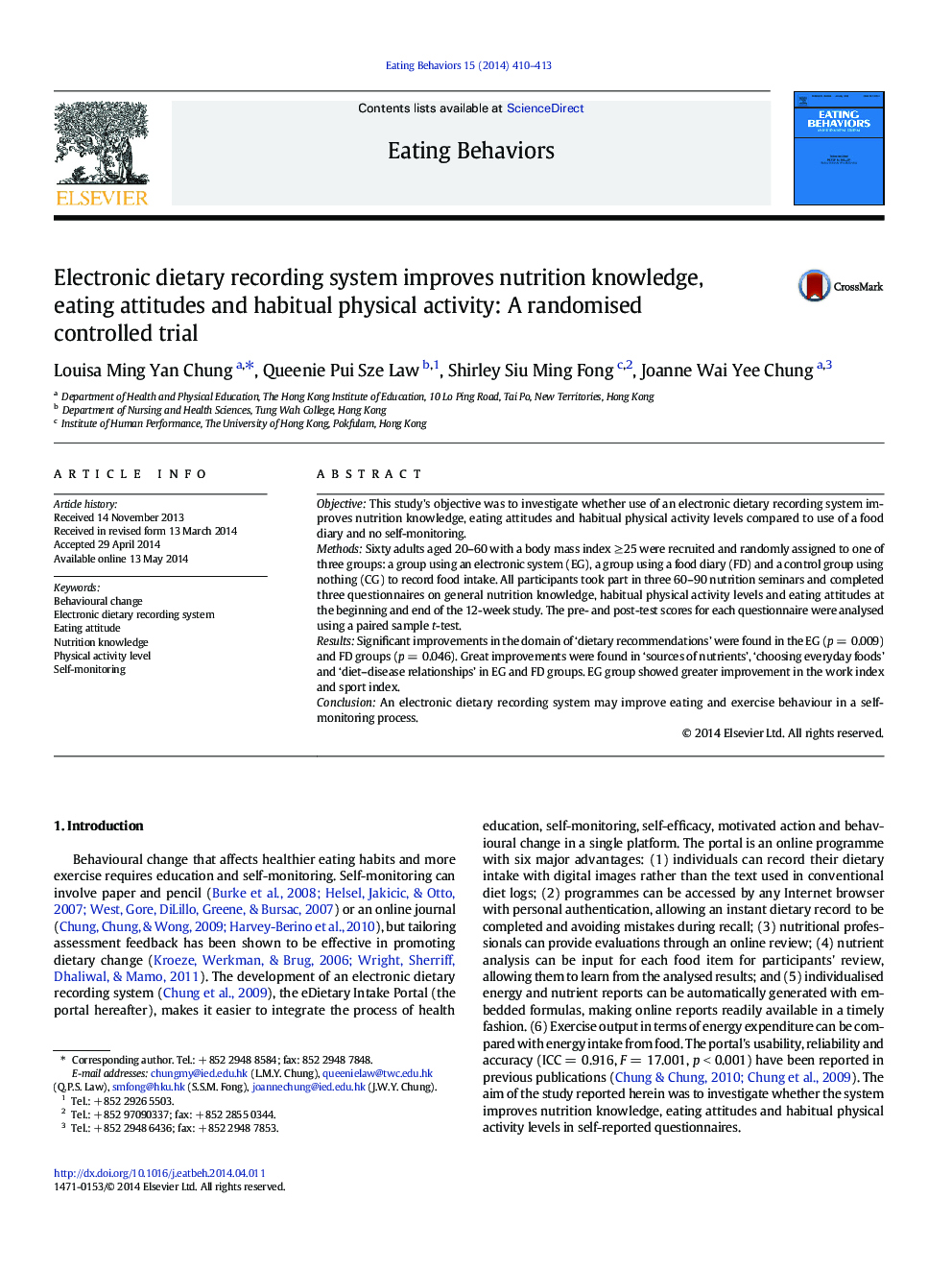| Article ID | Journal | Published Year | Pages | File Type |
|---|---|---|---|---|
| 906358 | Eating Behaviors | 2014 | 4 Pages |
•It is an innovative application of internet system in behavioural modification.•Electronic dietary recording can be turned to dietary review with feedback.•Online dietary review improves nutrition knowledge and eating attitude•Energy outputs as physical activity recorded motivate exercise.•Electronic dietary recording and reviewing facilitated the self-monitoring process.
ObjectiveThis study's objective was to investigate whether use of an electronic dietary recording system improves nutrition knowledge, eating attitudes and habitual physical activity levels compared to use of a food diary and no self-monitoring.MethodsSixty adults aged 20–60 with a body mass index ≥ 25 were recruited and randomly assigned to one of three groups: a group using an electronic system (EG), a group using a food diary (FD) and a control group using nothing (CG) to record food intake. All participants took part in three 60–90 nutrition seminars and completed three questionnaires on general nutrition knowledge, habitual physical activity levels and eating attitudes at the beginning and end of the 12-week study. The pre- and post-test scores for each questionnaire were analysed using a paired sample t-test.ResultsSignificant improvements in the domain of ‘dietary recommendations’ were found in the EG (p = 0.009) and FD groups (p = 0.046). Great improvements were found in ‘sources of nutrients’, ‘choosing everyday foods’ and ‘diet–disease relationships’ in EG and FD groups. EG group showed greater improvement in the work index and sport index.ConclusionAn electronic dietary recording system may improve eating and exercise behaviour in a self-monitoring process.
